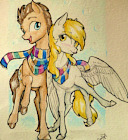Be an Author: Agendas · 7:40am Oct 28th, 2018
Every character has an agenda.
The cat wants to catch the mouse. The dog wants his human to give him a belly rub.
Every character has an agenda. Strive to make this true for all characters that populate your story the moment they differentiate themselves from the fog of the background and step into view. Perhaps they want to be ignored. Maybe she wants a beer. Even soldiers on the field of battle fighting the same foe will want something different: justice, glory, returning home to mom.
Your main characters, whether on a team, or acting alone need to want something. As the author you need to know what it is and to what lengths the character will go to achieve it. You may not know when you begin writing, but you must know by the time you write, “The End.” In real life, every person has an agenda. As an exercise, ask your friends and family what they want. Or observe. Then bring your observations to the printed page.
When you understand the concept of “every character has an agenda,” you can weld it in many scopes. It can define your protagonists and antagonists and guide you to enlarge the depth of a plot.
Or you can you it to help you write dialogue.
In dialogue, characters may listen to others or be in their heads. They should know what they want to argue and they should know what they want to achieve. From that context, they will hear only what makes sense to them and will say what they want the listener to understand; they may beg; they may even issue orders or ultimatums.
Taken to extremes, two characters talking become six: the two characters, the uncensored voice in each of their heads, and the person they think they are debating with. Good dialogue often features characters talking at cross purposes, not understanding one another at all times, sometimes coming to conclusions that force to explain further because they aren’t being understood.
A good exercise is to listen people in a heated discussion. Keep in mind the agenda of each of your characters as they speak. It’s a roadmap. It’s the difference between acceptable writing and fascinating dialogue.
I’ve tagged my story No Fault of Her Own because the Doctor and Muffins don’t really understand one another and talk at cross purposes. They have different agendas, but are not antagonists.





A good tip for writing dialogue that doesn't feel scripted.